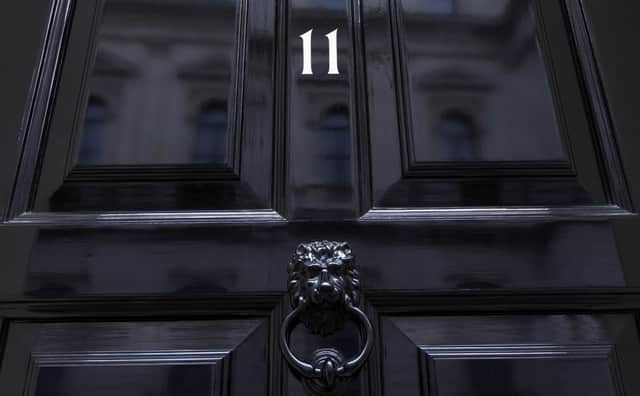‘Osborne risks hitting recovery with fiscal rule’


The spectre of an intensified fiscal squeeze is raised by the EY Item Club in its Budget preview, which argues that the timespan that George Osborne chooses to meet his new rule of running a budget surplus in “normal times” will be crucial.
It will have “a major bearing on the extent of the fiscal squeeze and the performance of the UK economy”, with the Item Club warning “that a worst case could see an extra £12 billion of spending cuts and tax rises over the next two years”.
Advertisement
Hide AdAdvertisement
Hide AdMartin Beck, senior economic adviser to the think tank, which uses the Treasury’s computer model of the economy, said: “The Chancellor’s new fiscal rule could entail an even tighter fiscal squeeze and even greater departmental cuts may be on the cards if he seeks to achieve his surplus target within the next two years.”
Beck said that with the Bank of England having limited flexibility to respond by lowering interest rates, already at historic lows of 0.5 per cent, “the result could be weaker growth”.
The government has already committed to £30bn of extra fiscal consolidation over the next two years. “The big question is whether the Chancellor’s new rule will define ‘normal times’ as when spare capacity in the economy has been eliminated – something which the Office for Budget Responsibility (OBR) believes will happen in 2017/18 – or whether he will retain the three-year timespan of the existing fiscal mandate, which will allow for additional breathing space,” says today’s report.
Beck said the EY Item Club believed the government could only achieve a surplus on the public finances if another sector of the economy ran a deficit. “The OBR’s view is that households will oblige, predicting a substantial rise in household indebtedness over the next few years,” he added.
“But households have persistently shown little appetite for more borrowing and we are doubtful that this will change any time soon. In that case, achieving a fiscal surplus is likely to depress the economy.”
Instead, the Item Club calls for a “growth-friendly” definition of this new framework, one setting out to achieve a surplus over a five-year period.
“This would minimise the impact on the economy as well as giving more time for monetary policy to return to a position where it can offset the fiscal squeeze,” Beck said.
Ahead of Wednesday’s Commons address, a stream of business organisations have urged the Chancellor to adopt policies that underpin and drive the economic recovery.
Advertisement
Hide AdAdvertisement
Hide AdThe Institute of Directors said today that the Chancellor needed to radically simplify the tax system this week in order “to unleash investment and give more people a stake in the private sector”.
Stephen Hay, head of tax at Baker Tilly in Scotland, said public spending cuts would “only go so far” in cutting Britain’s public deficit, meaning taxes will have to rise.
“With pre-election promises ruling out any rise in income tax, VAT and national insurance, and with any change to corporation tax very unlikely, we will need to see which groups of individuals stand to lose out,” he said.